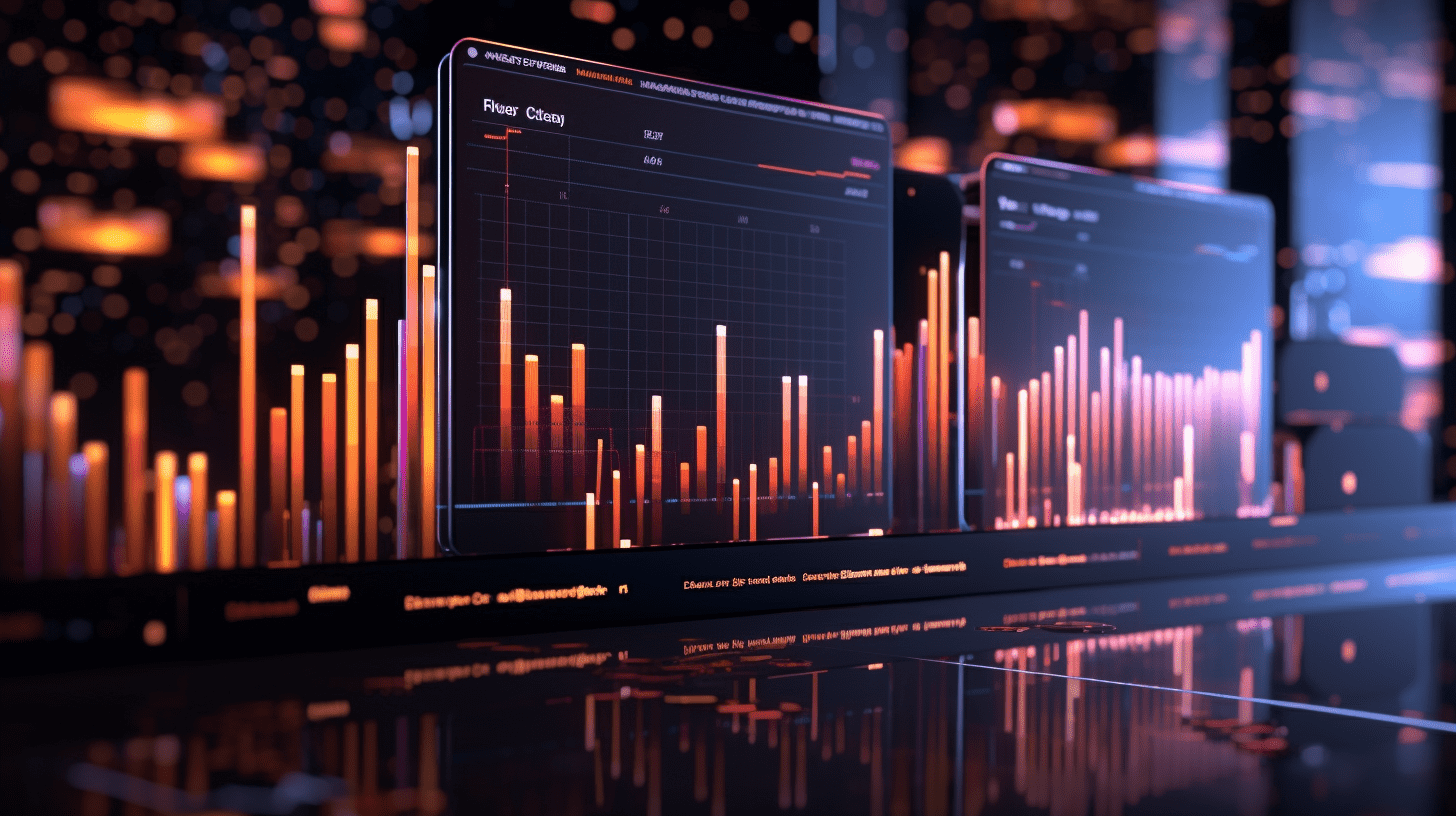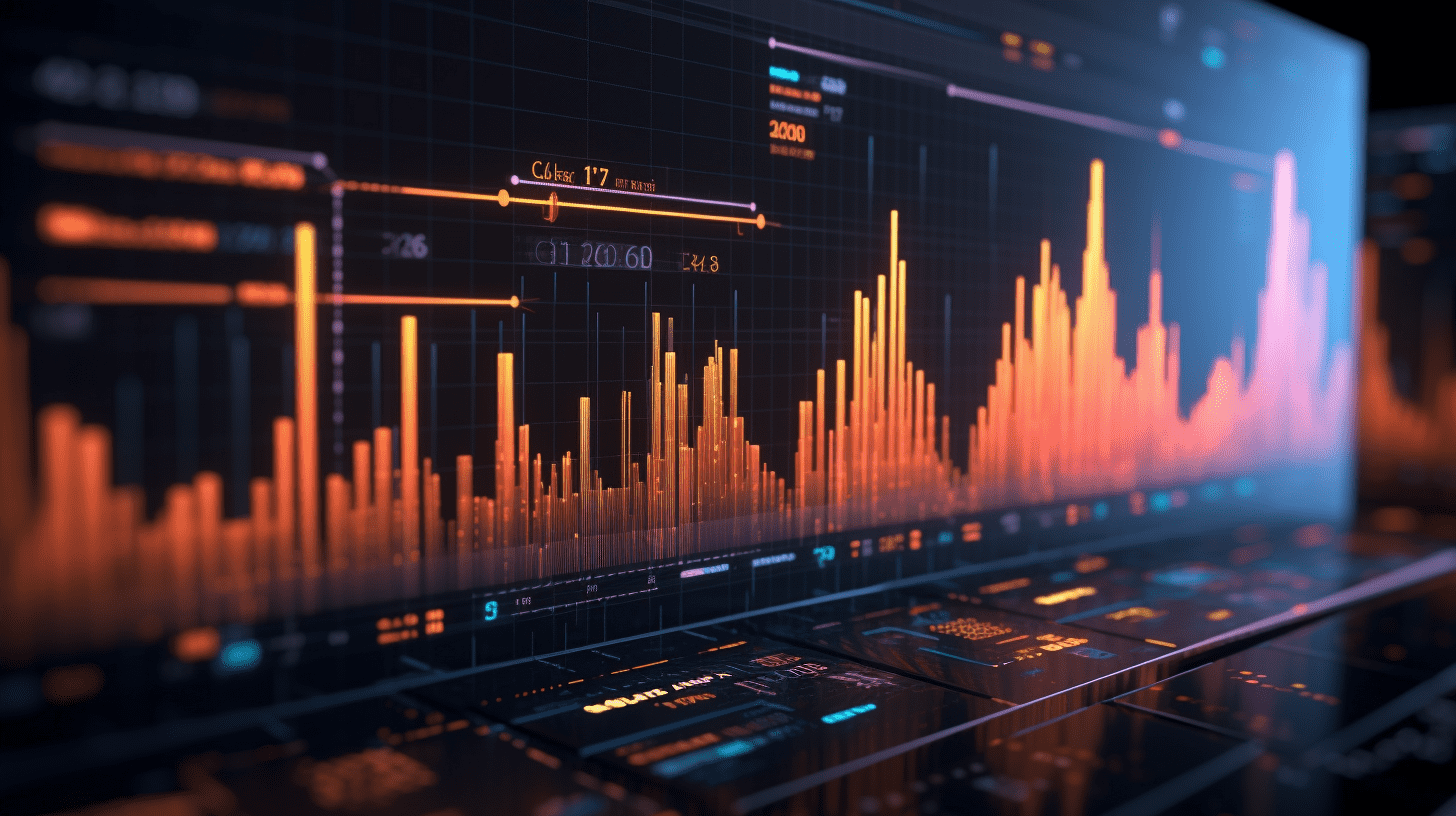Under the AI craze, technology giants are going their separate ways. Will the "fire of stock price differentiation" burn even hotter during the earnings season?
Technology giants are gradually moving away, and the winners of AI are beginning to make further breakthroughs.
Understood, the translation of the text you provided is as follows:
It is understood that what was once considered the strongest force driving the super bull market of US stocks since 2023the "Magnificent Seven" of the US tech giantsis now heading down the path of "stock price differentiation," especially with their varied performance in the field of artificial intelligence. Many Wall Street analysts have stated that while there have been no changes in the list of the "Seven Tech Giants" camp, the significant divergence in their stock prices indicates distinct progress in the AI competition and drastically different market expectations for their revenue-generating capabilities in the field of AI.
The so-called "Magnificent Seven" of US tech giants, which hold high weight in the S&P 500 and Nasdaq 100 indices, include: Apple Inc., Microsoft Corporation, Alphabet Inc. Class C, Tesla, Inc., NVIDIA Corporation, Amazon.com, Inc., and Facebook's parent company, Meta Platforms, which have been at the core driving force behind the repeated record highs in the S&P 500 index.
Looking at the entire US stock market, the seven tech giants have been the strongest engines leading the entire US stock market since 2023, leveraging their strong market positions to bring in robust revenue from AI, solid fundamentals, longstanding strong free cash flow reserves, and continuously expanding stock buyback programs, attracting funds from around the world.
From the trend of major Wall Street asset managers significantly increasing their holdings in the seven major US tech giants in the first half of this yearespecially showing a growing preference for Microsoft Corporation, NVIDIA Corporation, Amazon.com, Inc., and MetaWall Street has increasingly acknowledged the "AI investment logic" in recent years. Market demand for AI computing infrastructure and AI application software is expected to drive the performance and valuation of related tech companies into a new round of growth. This strategic focus on AI by the seven major tech giants, particularly NVIDIA Corporation, Meta, and Microsoft Corporation, has been the core logic driving the continuous rise of the US stock market since 2023.
Since 2025, the stock prices of NVIDIA Corporation (NVDA.US), Meta Platforms (META.US), and Microsoft Corporation (MSFT.US) have surged by over 20%, especially with NVIDIA Corporation seeing a 30% increase in its stock price this year. Conversely, Tesla, Inc. (TSLA.US), Apple Inc. (AAPL.US), and Alphabet Inc. Class C's parent company Alphabet (GOOGL.US) have seen declines of 18%, 16%, and 2% respectively. Alphabet Inc. Class C's parent company Alphabet and Tesla, Inc. were the first to announce quarterly earnings on Wednesday this week, with the other tech giants set to follow suit.
Jamie Cox, a senior analyst from Harris Financial, believes that this pronounced differentiation is inevitable as each of the seven companies operates in different core arenas, and the market is now identifying the true winners and laggards in the field of artificial intelligence. Nevertheless, the seven major tech giants still dominate the US stock marketaccounting for approximately 35% of the S&P 500 index weightand this proportion is unlikely to change in the short term. They played a crucial role in stabilizing market volatility during the extreme lows seen in April and the subsequent super rebound in global stock markets.
Therefore, the tech giant earnings season kicking off this week is crucial for the record-breaking US stock market and global stock market trends. Particularly, if NVIDIA Corporation, Microsoft Corporation, and Meta can release stronger-than-expected financial results and outlook guidance, it will likely drive the US stock market to new highs and propel tech stocks related to AI into a new upward trajectory.
The "laggards in AI" each face their own significant challenges. Michael Hartnett, a senior strategist at Bank of America Corp, who coined the term "Magnificent Seven" in 2023, indicated that these tech giants initially received this label due to their shared leadership in AI innovation and expanding the AI market.
As of today, the "Magnificent Seven" companies have seen diverging stock prices, but the list has remained unchanged, underscoring long-term market acceptance of these heavyweight giants. ETFs tied to these seven companies continue to be among the most popular ETF products globally.
Apple Inc.'s AI strategy has faced repeated questioning. Ivana Delevska, Chief Information Officer at Spear, pointed out that there are now meaningful differences emerging in the fundamental expectations of these tech giants. Apple Inc. introduced artificial intelligence features last year with Apple Intelligence, but progress has been significantly slower than expected, and the reshaping of the advanced AI model integrated into the Siri voice assistant may not be achieved until the end of 2026. Dan Ives, a senior analyst from Wedbush, described Apple Inc. as "sitting on the sidelines, watching the AI revolution pass by."
The loss of AI talent has been a recent blow for Apple Inc. Insiders have revealed that the top executive responsible for AI model development and deployment at Apple Inc. has moved to Meta Platforms, delaying Apple Inc.'s more personalized Siri AI voice assistant by a year. This, combined with the already challenging development pace for Apple Inc. in the field of artificial intelligence, is another setback. Before this top AI model executive was poached by Meta, several executives related to AI and machine learning businesses had already announced their departure from Apple Inc.
Alphabet is facing multiple challenges. Alphabet's Alphabet Inc. Class C is coping with heavy regulatory pressures from European and American antitrust bodies, as well as the impact of Generative AI on Alphabet Inc. Class C's core business of search engine operations. Nevertheless, with its unique vast database and the increasingly powerful Gemini AI model, analysts on Wall Street remain optimistic about its resurgence.
Jeff McClean, CEO of Solidarity Wealth, believes that any missteps by Alphabet Inc. Class C in its AI strategy will ultimately be corrected. With its vast data resources, Gemini AI application platform, and the gradual integration of AI into search engine and digital advertising operations, Alphabet still has the potential to regain growth momentum.
Tesla, Inc. has faced a series of negative developments this year. Tesla's stock price has dropped significantly by over 18% since the beginning of this year, primarily due to slipping electric car sales and the political controversies surrounding Elon Musk. Musk is focused on transforming Tesla, Inc. into a large tech company focused on superhuman Siasun Robot & Automation and AI. He proposed allowing shareholders to vote on investing in xAI, his AI startup striving to challenge the leadership position of OpenAI.
Many analysts believe that the Transformer humanoid Siasun Robot & Automation and the FSD subscription model driven by Tesla, Inc.'s AI supercomputing system could become a new growth driver for Tesla, Inc.
A leading Wall Street financial giant, Morgan Stanley, has recently issued a very bullish research report on Tesla, Inc., maintaining an "Overweight" rating for Tesla, Inc. stock and reaffirming a long-standing $410 price target.
Morgan Stanley's long-term bullish thesis for Tesla, Inc. revolves around the wide adoption of the FSD autonomous driving system, the fully autonomous Robotaxi network, and the immensely large AI humanoid Siasun Robot & Automation businessMorgan Stanley anticipates that the market size of Siasun Robot & Automation could surpass the current global automotive market significantly.
One of Tesla, Inc.'s staunchest bulls, Cathie Wood, suggested in March that Tesla, Inc.'s stock price could reach $2,600 within five yearsnearly nine times its current price. She believes that Tesla, Inc.'s core value will come from its fully autonomous Robotaxi business, which could account for 90% of the company's overall valuation. A research report from Wood's ARK Investment companies projects that by 2030, the fully autonomous Robotaxi market could reach $10 trillion. At that time, the number of self-driving taxis is expected to be around 50 million, with Tesla, Inc.'s Robotaxis potentially capturing around 50% of the market share.
Insiders in the AI industry are leading the way. Analysts at Wedbush pointed out in a report that Apple Inc., Tesla, Inc., and Alphabet Inc. Class C's parent company Alphabet are no longer as impressive in the AI race. Ives emphasized that the brightest spotlight in AI unquestionably belongs to the "AI chip leader" NVIDIA Corporationa company with a market value exceeding $4 trillion, seeing its stock price triple in two years.
The continued surge in global demand for AI computing power, coupled with the increasingly significant investments in AI infrastructure led by the US government, and tech giants pouring substantial funds into building large data centers, means that the "AI faith" sweeping the globe is far from over in driving the stock prices of the leaders in computing power. Companies in the AI computing chain led by Taiwan Semiconductor Manufacturing Co., Ltd. Sponsored ADR and NVIDIA Corporation are expected to continue writing the "bull market curve." NVIDIA Corporation, the "total AI leader," is officially embarking on the road to a $5 trillion market value and is even seen by a Wall Street investment firm as poised to challenge $6 trillion.
Meta and Microsoft Corporation have also seen significant benefits from AI, mainly due to the eruption of revenue from AI applications based on their vast user ecosystems. Amazon.com, Inc.'s stock prices only rose by 3% this year, primarily impacted by the uncertainties brought about by the aggressive trade policies led by the Trump administration. However, the positive growth in revenue from the investment in Anthropic's positive AI cloud computing power is increasingly evident.
Will the upcoming earnings season further fuel the momentum for AI winners?
With the beginning of the globally scrutinized earnings season, Wall Street analysts will closely monitor whether tech giants other than NVIDIA Corporation will continue to increase their investments in AI infrastructure and whether the latest financial performance and outlook of the "seven giants" will exceed market expectations.
However, the forthcoming period of tech giant financial disclosures may also serve as a catalyst for further differentiation in stock prices among the seven giantswhere AI winners like NVIDIA Corporation continue their bullish trend while AI laggards like Apple Inc. may see further declines and potentially enter a bear market.
Given the soaring valuations of NVIDIA Corporation, Microsoft Corporation, and Meta, expectations for AI computing investment, performance, and outlook have become especially crucial. Statistical data shows that six of the seven major tech giants have price-to-earnings ratios far higher than 25x, while the average price-to-earnings ratio for the S&P 500 index is only 22.35x; Alphabet Inc. Class C's parent company Alphabet is the only exception with a price-to-earnings ratio lower than the S&P 500 index.
Senior analyst Cox from Wall Street pointed out that for NVIDIA Corporation, Microsoft Corporation, and Meta to continue to rise at such extreme valuations, they need very strong profit performance, which he is unsure about.
Yet, the earnings growth expectations for the seven major tech giants remain strong, especially with NVIDIA Corporation expected to maintain its skyrocketing growth trajectory since 2023, and Microsoft Corporation and Meta also poised to achieve significant growth through their strong AI applications. Morgan Stanley anticipates a 14% year-over-year earnings growth for the seven giants in the second quarter, far surpassing the other constituents of the S&P 500 index, while the overall earnings for the S&P 500 index, excluding the seven giants, are predicted to decrease by about 3%.
Ken Mahoney, President of Mahoney Asset Management, stated that the next catalyst that could propel NVIDIA Corporation's stock price even higher is the upcoming tech giant earnings season. "We will be looking to see if the companies will once again exceed earnings expectations and raise guidance," he said. He added that NVIDIA Corporation's valuation is currently below its ten-year average level, indicating there is still significant upward potential. The stock's expected price-to-earnings ratio is around 33x, far below the ten-year average.
"You wouldn't think the valuation is too high when you consider the revenue growth rate," Mahoney emphasized. "The stock price is essentially catching up to the earnings growth expectations."
Some analysts believe that the current stock price differentiation may only be a temporary phenomenon. With strong cash reserves and a deep foundation in AI subfields, the currently lagging tech giants may eventually catch up and even outpace their competitors.
Senior analyst Ives from Wall Street stated that if they can successfully navigate the evolving AI landscape in different subfields, the seven tech giants may still have a chance to rally together.
The FAANG (Facebook, Apple, Amazon, Netflix, Google) combination, which once captured global investors' attention, has faded from the stage in 2023. If these seven tech giants continue on their divergent paths, investors may soon be seeking new market leaders and high-weight investment portfolios, making the term "Magnificent Seven" soon become a thing of the past.
Senior strategist Mary Ann Bartels at Sanctuary Wealth, known as the "Wall Street prophet," recently stated that artificial intelligence (AI) will drive profit growth and push the standard S&P 500 index to historical highs. She currently predicts that by the end of 2025, the US stock market will rise to 7,000 points, a 12% increase from its current historical high.
Bartels pointed out that the winners in the US stock market will continue to be winners. She is not concerned about the market concentration of large tech companies. Bartels wrote, "Profit growth remains relatively rare, primarily concentrated in the tech and tech-related industries, industrials, financials, and utilities benefiting from accelerated electricity demand."
She emphasized that with major companies continuing to invest billions of dollars in AI computing resources, networks, and storage infrastructure, the AI industry is still in its early stages. "Tech companies' profitability and ROE have always been the strongest, which is why funds continue to invest in these companies."
With the unprecedented AI boom driving the soaring growth of high-weight tech giants like NVIDIA Corporation, Microsoft Corporation, and Alphabet Inc. Class C, the Nasdaq 100 index, considered the "global technology stock bellwether," continues to hit new highs with a more vigorous rise compared to the S&P 500 index. According to LSEG statistics, the two indices are expected to achieve the largest year-over-year profit growth among the 11 industry sectors in the S&P 500 index in the second quarter: the technology sectors led by NVIDIA Corporation and Microsoft Corporation are projected to see a 17.7% year-over-year growth, while the communication services sector is expected to grow by 31.8%.
In the eyes of major Wall Street banks like Morgan Stanley, Bank of America Corp, and global asset management giant BlackRock, Inc., companies such as Taiwan Semiconductor Manufacturing Co., Ltd. Sponsored ADR, ASML Holding NV ADR, and Analog Devices, alongside NVIDIA Corporation, are indicators of the "strongest alpha" in the stock market. This trend toward a surge in AI computing power demand, despite the US government's attempts to restrict exports to China and the onset of a new round of tariff battles led by Trump, has not hindered the increasing demand for global AI computing power led by Amazon.com, Inc., Microsoft Corporation, Alibaba Group Holding Limited Sponsored ADR, and Alphabet Inc. Class C.
Related Articles

Trump announces new trade agreements reached with the Philippines and Indonesia, will impose 19% tariffs on their goods.

Market bets that Trump may appoint a "dovish" Federal Reserve chairman; US bond options are now biased towards bullishness.

The market quietly staged a style switch! The Russell 2000 index approaches a "golden cross."
Trump announces new trade agreements reached with the Philippines and Indonesia, will impose 19% tariffs on their goods.

Market bets that Trump may appoint a "dovish" Federal Reserve chairman; US bond options are now biased towards bullishness.

The market quietly staged a style switch! The Russell 2000 index approaches a "golden cross."

RECOMMEND

U.S. Congressional Budget Office: “Big and Beautiful” Act to Increase Deficit by $3.4 Trillion
22/07/2025

Fierce Midfield Battle for AI Talent: Domestic Shortage Reaches 5 Million While Overseas Giants Offer Multimillion-Dollar Salaries
22/07/2025

National-Level Housing Rental Regulations Issued to Strictly Regulate Fake Listings, Group Rentals, and Irregular Rent-to-Loan Practices
22/07/2025


